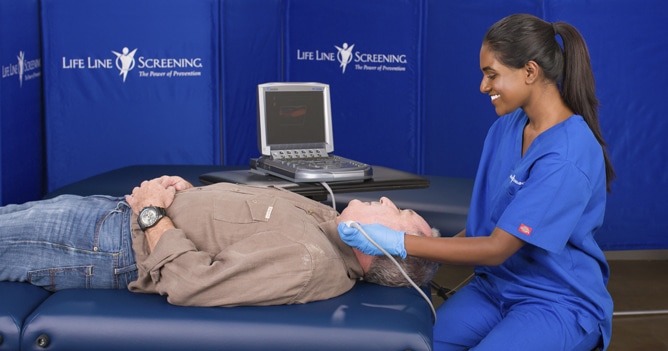Home » Health Education » Cardiovascular Wellness » What Are the Most Important Health Screenings?

What Are the Most Important Health Screenings?
Heart health screenings
Cardiovascular disease is a serious problem in America, and it takes millions of lives every year. That’s why heart health screenings are so important. Everyone has their own set of risk factors, and it can be hard to tell what yours are without a heart health screening or cardiovascular screening. They can help you find out if you have high blood sugar, bad cholesterol, or other minor issues that allow you to make lifestyle changes that can help keep you healthy.
Blood pressure screenings
Speaking of heart health, blood pressure screenings are one of the most important when it comes to heart health. This is especially true because high blood pressure often doesn’t show any symptoms. You can’t really detect it until you measure it. If you have high blood pressure, it significantly increases your risk of heart attack or stroke. More than 75 million U.S. adults have high blood pressure. That equates to one in every three adults. You might be one of them, so it’s essential that you get this heart health screening.
Body weight screenings
Screening your body weight is also important if you want to have a healthy heart. Every time you go to the doctor, they take your height and weight. This can help them measure your body mass index (BMI). These measurements will tell you whether or not you’re at a healthy weight. Two in every three adults is overweight or obese, and that increases your risk of diabetes, heart disease, and stroke.
Blood glucose screenings
Finally, your blood glucose should be screened regularly as well. Once you hit the age of 45, you should get glucose screenings at least once every three years. High blood glucose puts you at greater risk for developing type 2 diabetes, and it’s also a cardiovascular risk fact. Your doctor can screen your blood glucose and tell you how good or bad your levels are. He or she may also suggest HbA1c screenings, which measure the average amount of sugar in your blood over the last three months.
These health screenings are extremely important if you want to make sure you have a healthy life and live a long time. The results from these screenings can help you catch any issues before it’s too late. You can change your lifestyle accordingly and be on your way to a healthier, longer life!
Health Education Articles
Explore our library to stay on top of the latest trends, research, and helpful guidance based on your health needs.
Healthy Living
Stay informed on changes to everyday living that have a big impact on long-term health.
Diet & Nutrition
Get healthy recipes and advice proven to reduce risk of serious illnesses.
Disease Information
Discover the latest research about health issues often addressed by our services.